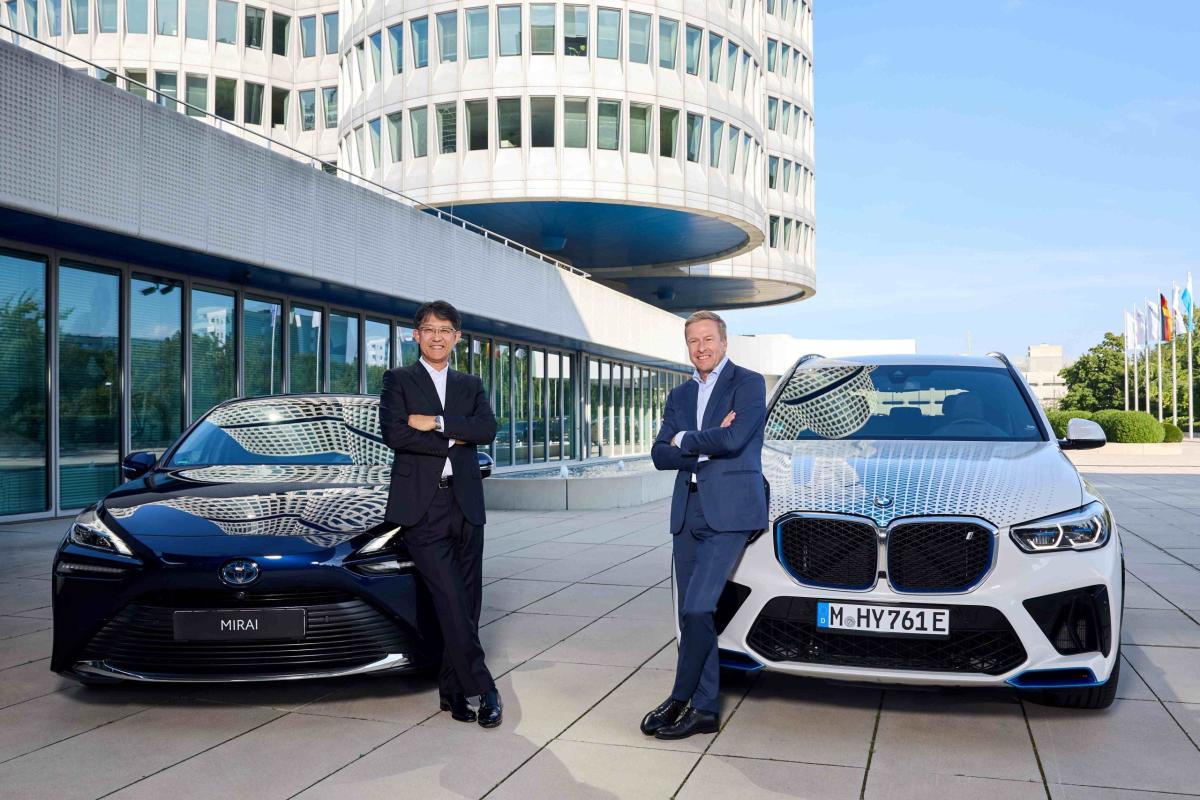BMW and Toyota's Groundbreaking Collaboration for Hydrogen Mobility
Key Ideas
- BMW and Toyota are set to launch the first series production fuel cell electric vehicle in 2028, marking a significant advancement in automotive history.
- The collaboration focuses on developing next-generation fuel cell systems and expanding infrastructure to support hydrogen mobility, aiming to drive down costs and promote economic viability.
- Both automakers emphasize the importance of complementary technologies, supporting the expansion of hydrogen refueling and battery electric vehicle charging infrastructure while advocating for a conducive framework by governments and investors.
- By deepening their partnership, BMW and Toyota aim to establish the FCEV market as a significant pillar alongside other powertrain technologies, further driving the development of hydrogen infrastructure through collaborative initiatives.
BMW and Toyota have announced a groundbreaking collaboration to introduce their first series production fuel cell electric vehicle (FCEV) in 2028, a milestone in the automotive industry. The joint effort aims to develop next-generation fuel cell systems and expand infrastructure to support hydrogen mobility. This initiative will enable the automakers to offer customers an additional electric powertrain option, emphasizing technological progress and shaping the future of mobility. BMW Chairman Oliver Zipse and Toyota President Koji Sato expressed their enthusiasm for this new stage of collaboration, highlighting the shared values and commitment to advancing fuel cell technology.
The partnership will focus on jointly developing powertrain systems for passenger vehicles, leveraging core fuel cell technology to create synergies for commercial and passenger applications. By amalgamating the total volume of powertrain units, BMW and Toyota intend to drive down technology costs while maintaining distinct brand identities and characteristics in their FCEV models. The collaboration also extends to advocating for hydrogen refueling and battery electric vehicle charging infrastructure, supporting sustainable hydrogen supply and promoting economic viability.
Furthermore, the automakers stress the importance of governments and investors creating a conducive framework to facilitate the early-stage penetration of hydrogen mobility. By promoting the corresponding infrastructure and engaging in regional projects, BMW and Toyota aim to position the FCEV market as a significant pillar alongside existing powertrain technologies, emphasizing the collective effort to advance hydrogen mobility. This strategic alliance underscores the potential of hydrogen in complementing electric mobility and fostering innovation in the automotive sector.
Topics
Fuel Cells
Infrastructure
Innovation
Electric Vehicles
Market Expansion
Sustainable
Collaboration
Global Partnership
Premium Manufacturer
Latest News
